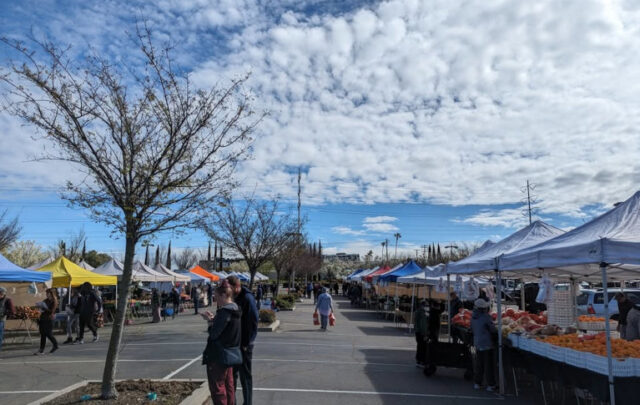At Terra Madre, the Slow Food movements bi-annual meeting of world food communities, seeing really is believing. It is almost impossible to do justice here to the scale and diversity of the event. Started in 2004, its aim has been to bring together the farmers, food producers, chefs, academics, and young people, striving to protect and preserve healthy, biodiverse food systems.
Across four days in October, the old Fiat manufacturing plant at the Fiera Lingotto opens its doors to thousands of delegates and visitors, who come to learn, taste, shop and exchange ideas. Visitors can enjoy the Salone del’ gusto – the world’s largest food market, curated by region, including products from India to Africa, England, to every conceivable part of Italy – or visit one of the many taste-workshops or cookery school events.
If working your way through the crowds entertaining your palate isn’t enough, then you can attend the many conferences taking place. These range from urban beekeeping, to stories of agricultural resistance, sensory analyses of Swiss cheeses, to workshops on ice-cream and its terroir. There is something for every possible area of interest. The challenge for visitors of Terra Madre lies mainly in deciding how to combat the crowds and what to attend in the face of overwhelming choice.
This was my fourth edition of Terra Madre and the joy this year was having the time and experience to cherry-pick the best bits, understanding where to avoid the crush of the lunchtime crowds, and which workshops would pose language challenges. Over coffee on the first morning, my colleagues and I opened the 87 page programme, jam-packed with potential experiences, and plotted a survival strategy for how to make the most of the time available. Identifying key conferences we wanted to attend, we broke-up the time between sessions with dips into the market, targeting the regions we most wanted to explore, and diving frequently into the ‘enoteca’ for much needed, grape-based, sustenance. The result, was one of the most inspiring 4 days I have ever spent.
At the opening ceremony, which began with an olympic style procession of world flags from more than 120 countries, Slow Food founder Carlo Petrini, spoke of the challenges faced by small-holder farmers and indigenous communities across the globe. Reflecting on the current political lack of interest in these issues, he argued that:
“the change we need costs nothing… Building soil fertility costs nothing, preserving biodiversity costs nothing, encouraging new farmers costs nothing.“
Making the case for small-holder farmers, he argued that supporting them would help reduce the impacts of a global economic crisis. He reflected on the important role of young people in building the food systems of the future, stating that “supporting young people is true sustainability’ and calling on the ministers present at the ceremony to ‘open lines of funding for young farmers.”
In a conference the following day, entitled Family farming against hunger and poverty, Petrini again talked about the role of diversity. ‘Only the work of communities can create the change that is needed’ he argued,
“The conversation needed is different from one country to another. We must understand the biodiversity of cultures…The thing we’ve learnt at Terra Madre is that this biodiversity of culture is essential for sustaining us.”
Discussing the number of youth delegates present he said:
“The inclusion of youth makes this the most important Terra Madre yet – their commitment to the change that is needed is incredible. The future of food is not for those with white beards appreciating fine wines, but for the young people, bringing their contributions, changing the politics of food, regenerating the world and fixing the damage that my generation is leaving you.”
On several occasions during this years event, Petrini called upon the ministers present from the Italian agricultural ministry, the UN and the FAO, to use their influence to support substantial and meaningful change. I couldn’t help but feel that this is really where the power of Slow Food’s work ultimately lies. Unlike other environmental campaigning groups, Petrini successfully manages to walk the narrow line between the joyous celebration of convivial food culture, and the demand for political and economic change. It is quite unique to manage an event that politicians actively want to participate in, and to publicly call them out on their mistakes, while still retaining the charm and good humour that keeps them coming back for more.
This year seems to have been the year that Slow Food has come of age politically. Not just with the presence of international heavyweights, such as Michelle Obama who sent delegates a video message of support, and Jamie Oliver who was in attendance for the first time, but throughout the year. Slow Food have made significant progress with their work in Brussels, and have become a powerful emerging voice on european legislation around topics such as GMOs and animal welfare.
In the past, the movement has sometimes struggled to walk the line between enogastronomic protectors of food culture and meaningful political activism, but now, the development of an active political agenda, supported by projects such as the Ark of Taste and the Slow Food Youth Network, mean that this global network is increasingly a power to be reckoned with. The successful marriage of the joyous celebration and sharing of food, with a meaningful political agenda will make it uniquely positioned to engage both people and politicians in the issues at hand.
Below is an edited recording of the workshop: Cooking to spread awareness. Featuring Jamie Oliver, Alice Waters, Carlo Petrini and Atlantic food journalist, Corby Kummer. We captured this film live during the workshop, so excuse the imperfect recording quality.
Filmed and edited by Pier Giorgio Provenzano at www.ididthisfilm.com





